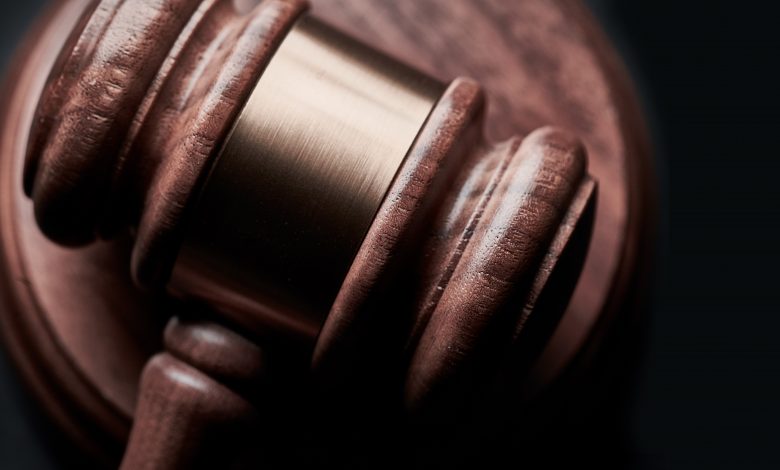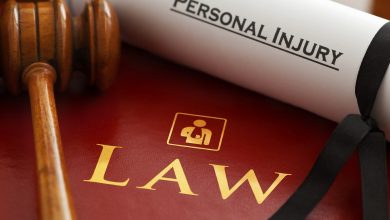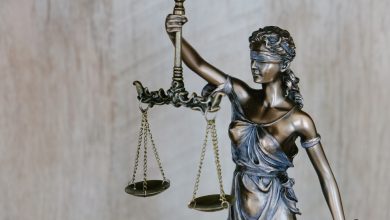What Is a Bench Trial? Jury Trial vs. Bench Trial

Every person has a right to a fair trial before being acquitted or convicted of a crime. A fair trial implies that the case will get heard within a reasonable time, in a public and independent court, conducted as per regulation, and overseen by an unbiased judge.
There are two types of trials to determine if an accused person is guilty or not; they are jury trials and bench trials. An often asked question is, “which of the two trials is better?” Here are details of both trial types, highlighting their advantages and disadvantages and comparing each one to the other.
What Is a Bench Trial?
Before a person is acquitted or convicted of a crime, two things must happen. First is a hearing, in which both the prosecution and the defense may present evidence to the court, call witnesses to the stand, and cross-examine these witnesses if they see a need to do so.
The second and more important thing is the verdict or judgment. The judgment is the direct result, after due consideration of all the facts, evidence, legal precedents, witness testimonies, and existing laws.
In a bench trial, a judge takes on the dual roles of arbiter and moderator, dictating the allowability of evidence, the conduct of the hearing, and making a finding.
When a Bench Trial May be Used
In most states, bench trials are for cases where there is a possible penalty of not more than six months of jail time. Thus, the defendants in simple assault cases, for instance, will get bench trials.
Still, in federal courts and in instances where the judge has stated beforehand that he will not impose prison time as punishment, the defendant will be tried at the bench. In high profile, sexual harassment cases, kidnappings, murders, and more, news coverage, whether fallacious or accurate, may have tainted the opinions of the jury panel before the trial.
Therefore, with the state’s consent and court approval, the defendant can opt for a bench trial instead of a jury, if they feel a bench trial serves them best. That said, the defendant must convey in writing their choice to avoid a jury trial.
Cases in municipal courts get tried at the bench.
Advantages of a Bench Trial
Below are the advantages a bench trial may confer on the defendant:
Speedy Resolution
Seeing as bench trials do not require time-consuming processes like jury selection and jury instructions, they can be scheduled and completed in a timely fashion.
Potentially Damaging Yet Irrelevant Information
A judge, being a trained professional, is typically more neutral than a jury and will less likely be affected by the revelation of potentially damaging yet irrelevant information having no bearing on the case at hand.
For instance, in a murder trial, a jury is likely to find a convicted rapist guilty, even though the past conviction does not apply to the current case.
Financial Implications
The longer you retain the service of a lawyer, the more money you’ll have to pay. Thanks to its expedited process, a bench trial significantly cuts the expenses accrued from retaining a defense lawyer’s services. This avenue to resolve cases speedily is especially useful when financial constraints limit the amount of money available for lawyer payments.
Comprehension and Application of Legal Technicalities and Rules
Again, being a trained professional, a judge will be better able to interpret any legal technicalities and jargon that may arise during the trial. Some lawyers also believe that, in the heat of the moment, juries may forgo the legal instructions they were given and instead make decisions based on sentiments.
The Ability to Tailor a Defense Based on the Antecedents of the Judge
Unlike a jury trial where there’s relatively no information as to the dynamics of the jury panel, the past rulings along with the pre-trials can reveal a judge’s modus operandi. Thus, a bench trial allows a lawyer to tailor his case in such a way that it resounds with the presiding judge while avoiding potential areas of contention.
Disadvantages of a Bench Trial
All things with advantages have accompanying disadvantages. Here are a few drawbacks of bench trials.
Fewer People to Convince
Most times, a jury comprises 12 jurors, all of whom must reach a unanimous verdict to convict or acquit. Except in cases where the evidence presented overwhelmingly supports the prosecution’s claim, the prosecutor will find it more challenging to get a dozen people to agree with him than with one judge.
Note that this advantage is, at the same time, a disadvantage, as in the face of incriminating evidence, it will be just as difficult to prove a defendant’s innocence.
The Judge Knows All the Evidence
In both jury and bench trials, the judge is the moderator of the proceedings. He determines which evidence is relevant and which should get thrown out. Prejudicial, immaterial, and questionable evidence gets rejected.
The jury, being unaware of the excluded pieces of evidence, will not be influenced by it. Despite not admitting the evidence in a bench trial, the judge, despite his best efforts, might still be swayed by the excluded evidence.
The Neutrality of the Judge
It is possible, with the help of a well-crafted defense, to influence the jury to forgo the instructions the judge has given it and instead reach a verdict solely based on emotion.
Such a tactic will not work on a judge, as he knows to follow, to the letter, every rule of law; sentiments have little or no bearing on his decisions.
Jury Trial
A jury trial is almost like a bench trial, but there’s a critical difference: the judge does not reach the verdict—instead, the job of acquitting or convicting lies in the jury’s hands. The judge’s role is limited to moderating the proceedings, determining what evidence is admissible, answering questions of law, and instructing the jurors on what legal means to employ in their decision.

Jury Trial Procedure
A jury trial for criminal cases is generally in six main steps. In order of precedence, the six procedures are as follows:
1. Jury Selection
Typically, a jury comprises 12 people. In selecting these 12 persons, the judge, the defense, and the prosecution pose questions to a pool of potential jurors. The querries are in some way related to the case; issues like ideologies and life experiences are typical questions to ask, as these may influence the juror’s decision.
Based solely on the responses provided to the questions, the judge will excuse some jurors from the pool. Through the use of peremptory and cause challenges, the defense and the prosecution may themselves excuse some jurors from the pool.
Peremptory challenges are the defense or prosecution’s opposition to a juror without stating a reason, but supposedly not based on race, religious and cultural affiliations, or any other forms of discrimination. Peremptory challenges are immediate, and each party has a limited number, depending on the nature of the case.
Challenge for cause, or strike-for-cause, is employed by both sides to exclude jurors who, by their answers, have been revealed as not being genuinely objective. While there’s no limit to the number of strike challenges a lawyer can issue, the trial judge must sustain each one.
2. Opening Statements
After a jury is selected, the prosecution and the defense both issue statements. At this point, no witnesses get called, and neither side presents evidence. As the prosecution, in its role as the representative of the government, is seeking to establish the defendant’s guilt and obtain a conviction, its opening statement usually comes first and is more detailed than that of the defense.
In some instances, the defense may wait until the prosecution has presented its case before making its opening statement. Regardless of the time and manner that the defense and prosecution deliver their statements, certain things must occur.
The prosecution, in its opening statement, puts forward the facts as the government sees it. It informs the judge and jury of what the defendant did and what it (the prosecution) aims to prove.
The defense, in its opening statement, offers the facts as it sees it to the judge and jury. It readies to challenge any evidence put forward by the prosecution and then presents its evidence.
3. Witness Testimony and Cross-Examination
Frequently called case-in-chief, this is the point at which both sides present their evidence to the judge and jury.
The prosecution first presents its evidence to convince the judge and jury beyond every reasonable doubt that the defendant indeed committed the crime. At this point, the prosecution may call on eyewitnesses and experts to give testimonies under oath. It may also present physical evidence like videos, phone records, pictures, and more.
After the prosecution’s case-in-chief, the defense presents its evidence and witnesses in the same manner as the prosecution.
4. Closing Argument
The two sides offer their closing arguments only after they’ve both presented their case and have had the opportunity to challenge the evidence presented by the other.
Like the opening statement, both sides give summaries of the case, reiterating the major contention points. The closing argument is the final chance that both sides get to address the judge and jury. As such, the prosecution closes by asking the judge and jury to find the defendant guilty. On its part, the defense requests that it not be found guilty based on the evidence it has presented to the court.
5. Jury Instruction
After the prosecution and defense have had the opportunity to present their closing arguments, the jury instructions follow. It’s at this stage that the judge informs the jury of the legal standards to use in determining whether or not the defendant is guilty.
Based on the charges, evidence, and arguments as presented by both sides, the judge chooses the legal standards the jury will employ in reaching a verdict, usually with input from the prosecution and the defense.
Finally, the judge will explicitly define the essential concepts that relate to the case. These concepts may include “beyond all reasonable doubt” or “statutory rape” in such a situation.
6. Jury Deliberation
Having been instructed on the legal standards to use in reaching its decision, the jurors deliberate the case among themselves. The deliberation is the first chance the jurors have to discuss the matter with one another. Jury deliberation is a systematic process and may take hours or several days before it reaches a verdict.
When the jury concludes its deliberations, it communicates its verdict to the judge. The judge, in turn, declares the judgment in open court.
Sometimes, the jury may fail to reach a unanimous decision and will find itself at an impasse, otherwise known as a hung jury. When this happens, the judge may announce a mistrial. After mistrials, cases may get dismissed, or there may be a retrial with all the previous evidence and witnesses.
Advantages of a Jury Trial
The jury does not get exposed to harmful but irrelevant pieces of evidence that may influence its decision.
Compared to a judge, the members of a jury are less strict and are susceptible to a passionate defense.
Most states require the jury to issue a unanimous verdict; anything less will result in a mistrial. The prosecution will have a harder time convincing all 12 jurors to find the accused guilty compared to convincing a single judge.
Disadvantages of Jury Trial
Twelve individuals are sure to have dissenting views. Jury deliberations can sometimes stretch into weeks and months. You’ll need to retain a lawyer’s services while you wait for the verdict, thereby incurring more expenses.
The jurors will be people you’ve had no encounters with and cannot in any way predict. On the other hand, you can make informed guesses about a judge based on their statements and past rulings.
Although unethical, lawyers have attempted to manipulate the jury to achieve their aims. By deliberately striking out individual jurors, such that the resulting panel is not at all a jury of peers, the ensuing verdict may, therefore, not be objective.
Bench Trial Procedure
The procedure for a bench trial and a jury trial is almost the same. The only difference is that a bench trial does not have a jury. In other words, three of the six steps detailed above, i.e., jury selection, jury instruction, and jury deliberation, do not apply in a bench trial. All other actions in a jury trial (opening statement, witness testimony, cross-examination, and closing argument) are the same in a bench trial.

Bench Trial or Jury Trial?
If you do not wish to plead guilty, then your case will proceed to trial. The trial can happen in two ways, a bench or jury trial.
As this article has shown, the two trials, while similar, still have differences, and inherent in these differences are advantages and disadvantages.
Although the panel of jurors are screened and instructed to avoid mistakes that may result in mistrials, their decision doesn’t always comply fully with the law. Depending on the case, this may be beneficial to the accused, and at the same time, it may not.
Conversely, a judge is an expert on legal nuances; the chances of mistakes are very slim. A judge is a trained professional, capable of making as unbiased a decision as possible. Thus, the ruling of a judge will be more likely objective and in compliance with the law.
The choice of which of the trials to pick is a purely strategic one, and it depends on your case’s specifics.
If you’re the defendant of a particularly brutal crime or the offense has received much media coverage, such that there can be no real unbiased jury, then a bench trial may serve you better. Even better is if the judge presiding over the case has a habit of showing leniency.
On the other hand, opt for a jury trial if the case is relatively simple, without complicated legal terms. The trial you choose may affect the outcome of the case, but not as much as your lawyer will change it. Whatever choice you make will all be for naught if you do not get a competent lawyer to represent you. Lawyers who are worth their salt can better advise on the choice of trial and other crucial aspects of the case that will determine if you get acquitted or convicted.



